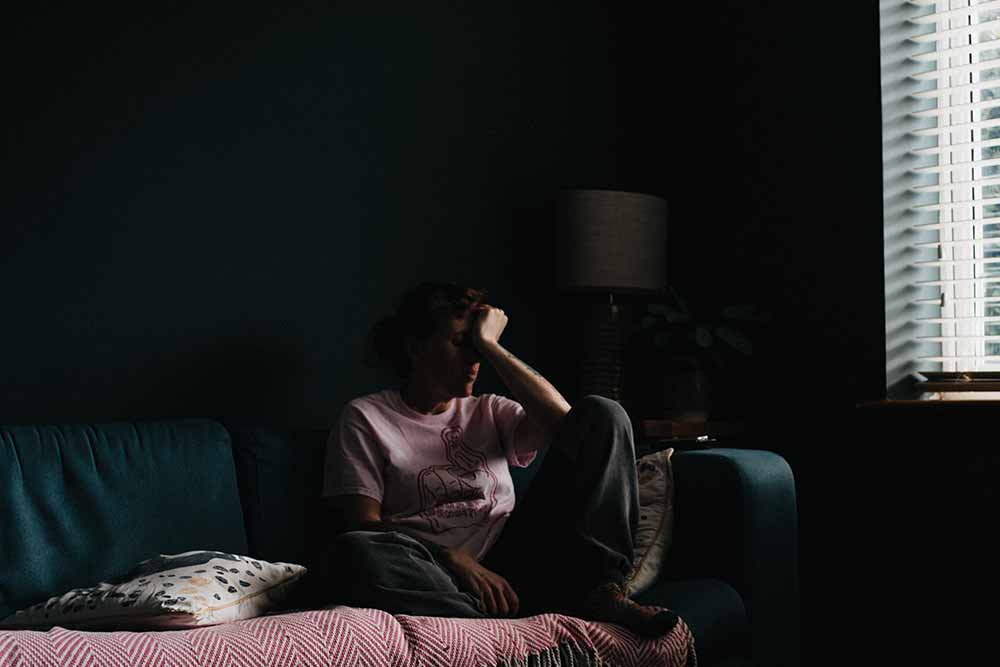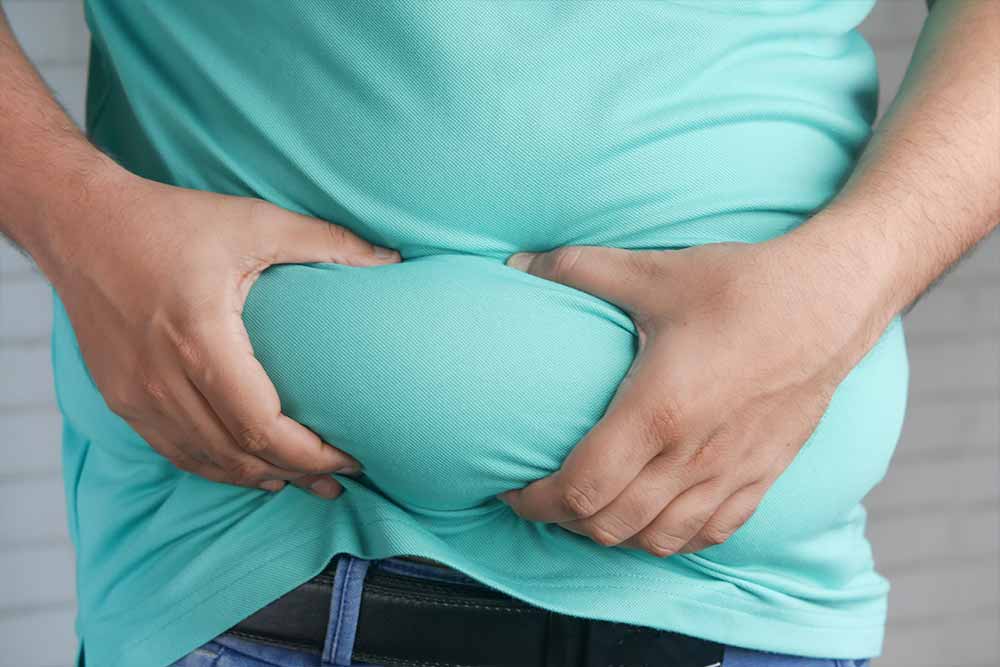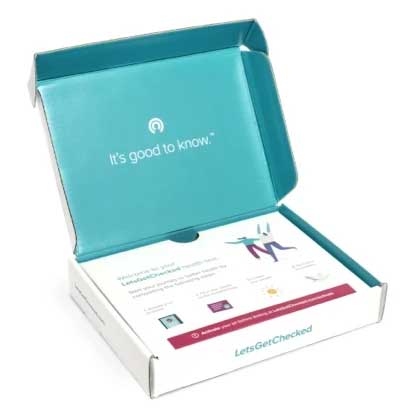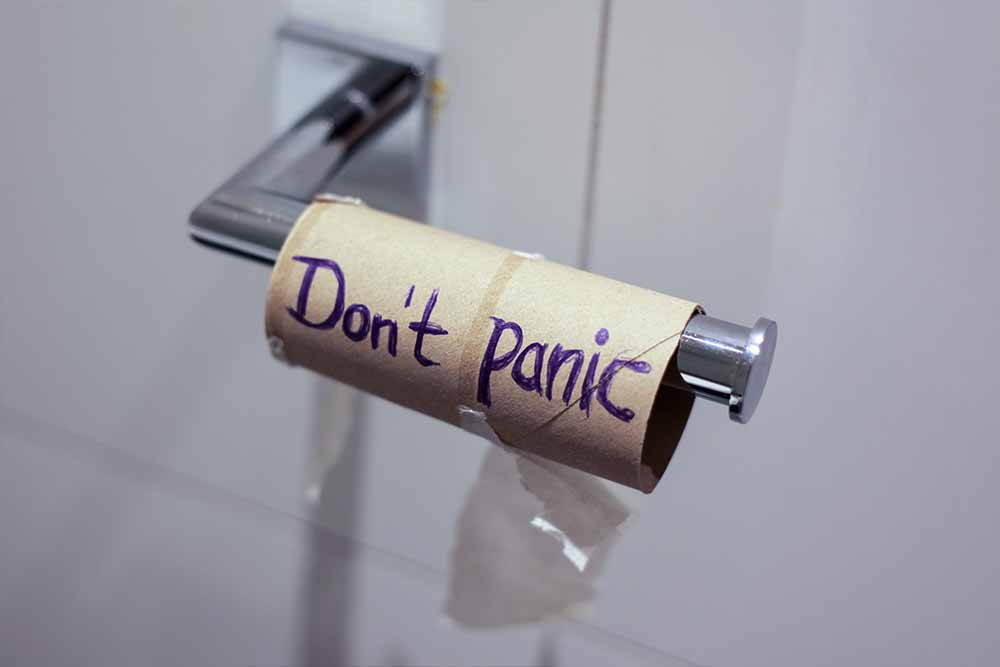If you're trying to get to the bottom of a potential thyroid health concern, you have a number of options for checking your thyroid at home. These home thyroid tests must however form part of a further investigation with a healthcare professional if you're serious about addressing those concerns.
You can theoretically carry out the same checks used by healthcare practitioners, but the emphasis is on you to perform them correctly. You can check your thyroid gland naturally with a physical neck check or you can buy an at-home thyroid test kit to screen a blood sample for abnormal thyroid hormone levels.
You would generally check your thyroid if you believe you have symptoms of a thyroid disease like hyperthyroidism or hypothyroidism or if there is a history of thyroid related ill health in your family.
Thyroid Neck Check
A home thyroid neck check is either obvious or inconclusive – it's not that reliable. Let's assume curiosity (potentially from symptoms of ill health) has led you to investigate a thyroid problem. You're looking for lumps, bumps and abnormalities.
The problem with the neck check is you really need to know historically if the contours of your thyroid are normal or have altered over a period of time.

If you find significant lumps, then you could say there's a chance of that being the problem. If you find nothing abnormal, however, but you're still worried about your symptoms you may have a problem that hasn't presented itself yet with physical symptoms and therefore the neck is unreliable.
- Look & locate
- Stand in front of a mirror and look at your neck.
- Raise your head to get a better view.
- Locate the thyroid area below the middle of your throat
- Sip & Swallow
- Sip a glass of water as you look at your neck in the mirror
- Swallow the water and look at the area that moves up and down
- The bit of the throat just above the left and right clavicle joins
- Watch & Feel
- Watch how the area moves – that's the thyroid gland
- Feel the movements in and around the throat
- Check for abnormal tissue, lumps & bumps
Check For Signs & Symptoms
Thyroid diseases are conditions that affect your thyroid making it dysfunctional, leading to irregularities in the production of hormones Thyroxine and Triiodothyronine. The most common diseases result in either too much hormone production (Hyperthyroidism) or too little (Hypothyroidism).
Hyperthyroidism
Hyperthyroidism is the condition of overactive thyroid, also known as thyrotoxicosis, where the thyroid gland produces too much Thyroxine and Triiodothyronine.

Symptoms of hyperthyroidism include but are not limited to:
- Enlarged thyroid
- Weight loss
- Fatigue and tiredness
- Tiredness but sleep problems
- Feeling hot
- Excessive sweating
- Faster than normal heart rate
- Diarrhea and more frequent movements
- Hand tremors
- Feeling weak
- Fertility concerns
- Anxiety & nervousness
- Irritability
Hyperthyroidism
Hypothyroidism is the condition of an underactive thyroid, where the thyroid gland doesn't produce enough Thyroxine and Triiodothyronine.

Symptoms of hypothyroidism include but are not limited to:
- Tiredness and having little energy
- Feeling sensitive to cold
- Weight gain
- Slower than normal heart rate
- Dry, scaly skin & scalp
- Muscle cramps (& hand cramps)
- Depression
- Constipation
- Memory Loss
- Hair loss
At-Home Lab Tests
If you want to advance any concerns you have with ill health specific to your thyroid, there's a wealth of at-home thyroid test companies that now offer at-home test kits to screen your blood for hormone imbalances.

LetsGetChecked – Thyroid Test
This at-home thyroid test measures key hormones and can identify the presence of hyperthyroidism or hypothyroidism.s, to identify thyroid dysfunction or damage. Blood samples for this test are collected through a finger prick lancet
$139.00

LetsGetChecked – Thyroid Antibody Test
This at-home thyroid antibody test measures key hormones and antibodies, to identify thyroid dysfunction or damage. Blood samples for this test are collected through a finger prick lancet
$139.00
You start by buying a home testing kit online, these are through private companies, so you have to buy their products in order to access their private services. The companies are independent of your regular primary healthcare provider, data is encrypted and rarely viewed by company personnel in any respect other than to offer treatment when you need it. These are private digital companies, and your profile is secured and inaccessible to anyone outside of the organization.
There's a range of purchase options available from the various at-home testing providers. The thyroid gland is responsible for producing two hormones Thyroxine and Triiodothyronine, which you can test in most basic thyroid kits.
Some thyroid issues also produce an immune response as the patient develops an autoimmune disorder, so testing for antibodies, as well as the levels of Thyroxine and Triiodothyronine, can hint at more specific thyroid issues.
Test Result Levels
If you're checking your thyroid at home through a blood test, you'll be likely testing your Thyroxine and Triiodothyronine levels first and foremost.
High Thyroxine and Triiodothyronine Results
High levels of Thyroxine and Triiodothyronine in your test results are a sign of hyperthyroidism and an overactive thyroid.
Low Thyroxine and Triiodothyronine Results
Low levels of Thyroxine and Triiodothyronine in test results are signs of hypothyroidism and an underactive thyroid.
Thyroid stimulating hormone results
Some tests check for TSH, which is the thyroid stimulating hormone produced in your pituitary gland that assists in the production of our thyroid hormones Thyroxine and Triiodothyronine. By testing TSH against normal levels, doctors can determine if there is a problem related to the production of hormones by the amount of TSH that is produced before the release of your thyroid hormones.
Too much TSH (thyroid stimulating hormone), means you are working harder to produce thyroid hormones so require “more” stimulation through TSH.
When there is too much Thyroxine or Triiodothyronine, the pituitary gland releases less TSH (thyroid stimulating hormone) as it is not required to stimulate the release of thyroid hormones.
Thyroid antibody test results
Autoimmune disorders can develop like Hashimoto's or Graves' disease, so testing for the presence of specific antibodies is another more advanced method of discovering thyroid issues.
Thyroglobulin Antibodies (TGAB) and Thyroid Peroxidase Antibodies (TPO/TPEX) can be present in the results at normal and abnormal levels. the presence of antibodies can be a useful indication of thyroid damage related to thyroid disease.
Conclusion:
A neck check will help you uncover physical abnormalities if you know what the normal appearance of your thyroid gland looks like
At-home tests can screen your blood for imbalances in thyroid hormones or they can check for antibodies produced in response to autoimmune disorders.
Can you check your thyroid yourself?
You can perform a neck check to see if your thyroid gland has altered over time and has abnormal lumps or bumps. Or you can take an at-home blood test from an online testing company to check if the balance of thyroid hormones is irregular.
Sources
NHS UK Overactive Thyroid – Hyperthyroidism
NHS UK Underactive Thyroid – Hypothyroidism
ST Peter's Healthcare System – YouTube Neck Check
Image Credits
Featured Image – Photo by ᴇᴍɪ
Extended Neckline – Photo by I8r8oosh
Tired person on sofa – Photo by Annie Spratt
Fatty Stomach – Photo by Towfiqu barbhuiya








